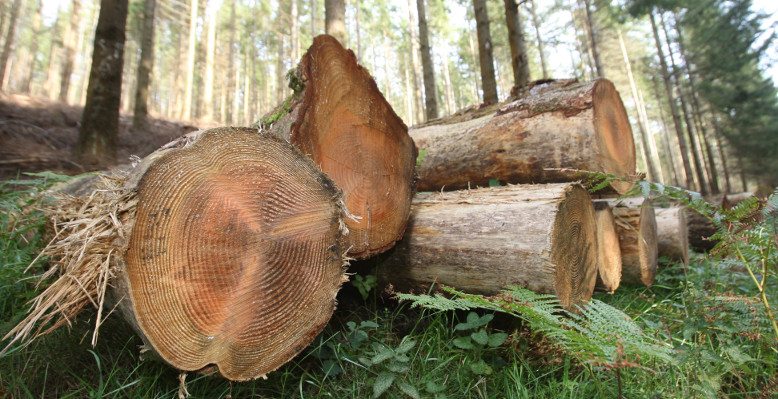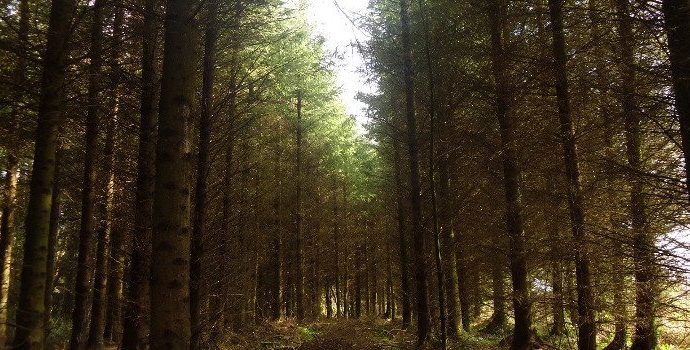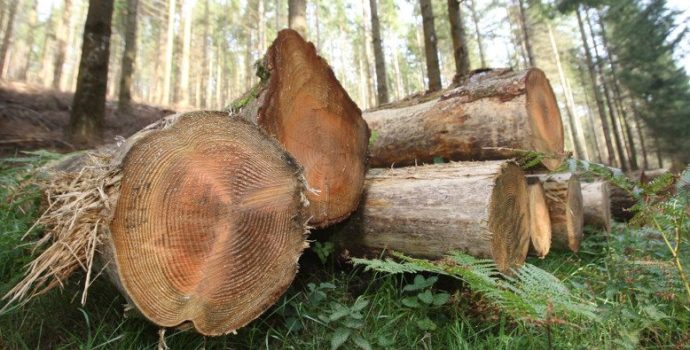Farmers and Foresters Unite in Call for Major Reform to Increase Afforestation

The Irish Farmers Association, Forest Industries Ireland and the Irish Timber Growers’ Association have united to jointly call out the Government on the stalled afforestation programme and the need for major enhancements to get trees planted.
A new forest strategy and a new set of forestry schemes are due in the next few months.
Afforestation is stalled at 2,000 hectares per annum when it needs to be 10,000 hectares to meet Ireland’s legally binding carbon neutrality commitments by 2050. Tree planting has fallen by 80% over the last decade.
IFA Farm Forestry Chair Jason Fleming said the current regulatory system is not fit for purpose and does not support planting and management of forests at farm scale. It is too bureaucratic and needs to be reformed. Farmers are crucial decision makers, who will ultimately determine the production systems implemented on their land.
“If they are to plant at the scale required to meet the targets, they must have confidence that the system will support them to plant and manage their forest. Successive policy decisions have failed farmers, and these need to be addressed in both the new forestry strategy and programme if confidence is to be restored, and the opportunities offered by forestry to meet both biodiversity and climate objectives realised”.
Mark McAuley, Director of Forest Industries Ireland said, “We planted only 2,000 hectares of new forests in 2021 and similar figures are expected this year. What we need is a major injection of money, energy and confidence into our national forestry programme. Now is the time for action. The forest strategy might be sound, but that’s no good without major improvements to the forestry programme to make it much more rewarding for farmers and foresters”.
“We have to reduce the bureaucracy and increase the payments for tree planting. Forestry is the best way to diversify land use, lock away carbon and fight climate change, while also rewarding farmers.”
Brendan Lacey, Chairman of the Irish Timber Growers Association said the most recently available Fact Sheet on Irish Agriculture shows that for 2019, ‘payments to farmers totalled over €2 billion including Single Farm Payment, Rural Development and Forestry Payments’.
Of this over €2 billion spend, forestry received just €90 million, or 4.5% of the total. This imbalance in supports must be addressed to provide significant additional supports for forestry to reflect the public goods, such as biodiversity, carbon sequestration, improved air quality and others provided by farmers and landowners who plant lands. Only through such rebalancing of supports will Ireland achieve its ambitious climate action targets.
. Foresters and famers are calling on Government to take five major initiatives:
- Reform the licensing system to reduce bureaucracy and bring an end to long delays. Without a fully functioning system that is supportive of forestry, government targets to plant 8,000+ hectares of forestry each year will be completely undermined.
- Increase forestry grants and premiums to enhance the financial proposition to plant trees. The current payments are not sufficient to attract large areas of land into forestry. There needs to be a step change in payments to make this an economically attractive option for farmers and landowners, and drive up the afforestation rate.
- The 2023-2027 Forestry Programme schemes need to be simplified and improved. There current forestry schemes are too complex and the Department of Agriculture imposes far too many ad hoc conditions on a landowner when they want to fell or plant. It is vital to reduce uncertainty and interference in standard forestry operations.
- Land availability is a core issue in increasing afforestation. The Forest Service should have a positive attitude to finding new lands to plant and reduce the restrictions it imposes. When Government is overly prescriptive it stifles investment and planting.
- Government must invest significant effort in the development of payments for ecosystem services. The availability of financial rewards for such things as enhancing biodiversity, providing habitats and sequestering carbon, will provide an important additional incentive for woodland creation.



